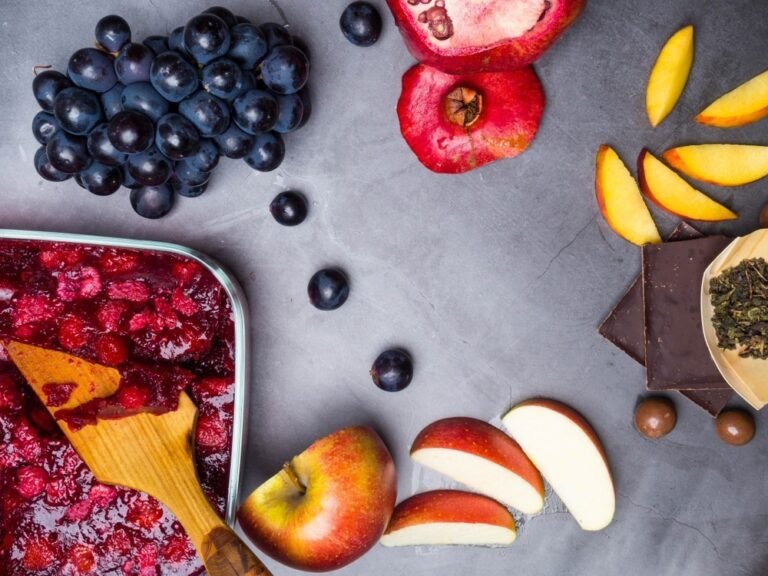A large cohort study of UK adults reveals that consumption of flavonoid-rich foods such as tea, red wine and berries is associated with a reduced risk of dementia, particularly among those with a high genetic risk, hypertension or depressive symptoms.
In a recent study published in JAMA Network Openresearchers investigated associations between scores of flavonoid-rich foods (palatable diet), flavonoid categories, and dementia risk. They also investigated these associations in the settings of high genetic risk, hypertension and depression.
Background
Dementia, a disease characterized by gradual cognitive decline, impairs thinking, memory and the ability to perform everyday tasks. The lack of effective treatments makes the disease a growing global health concern. Preventive treatments are critical to improving health, reducing costs, and reducing the risk of dementia. Modifiable risk variables such as diet play a critical role in disease prevention, with plant-based diets associated with a reduced incidence of cognitive impairment.
Plant-based foods and beverages contain flavonoids, which are associated with reduced risks of dementia, depression, and hypertension. Dietary flavonoids reduce neuroinflammation, increase blood flow in cerebrovascular channels, and have a role in the gut-brain axis. These foods also affect neural pathways involved in synaptic plasticity. Identifying flavonoid-enriched foods associated with better health outcomes may help develop dietary recommendations for intervention studies and population health efforts.
About the study
In the present study, researchers determined the relationships between flavonoid consumption, flavonoid subclasses, and dementia risk. They also examined these relationships among genetically susceptible, hypertensive, and depressed individuals.
Researchers analyzed dietary data provided by UK Biobank participants aged between 40 and 70, recruited from 2006 to 2010 based on National Health Service (NHS) registers. Participants completed the Oxford WebQ dietary questionnaire and completed several biological and physical assessments. All participants provided at least two diet records. Participants’ daily dietary intake ranged from 800 to 4,200 kcal for men and 600 to 3,500 kcal for women.
The researchers developed a diet score by adding the primary participants’ intakes of flavonoid subclasses and then calculated the cumulative mean using the participants’ energy intake. The main contributors were the three meals that consumed the most of each flavonoid subcategory. Study endpoints were adherence to the flavonoid score and flavonoid subclass consumption as measured by 24-hour dietary assessments.
The primary outcome was new-onset dementia and its association with hypertension, depression and genetic risk. Individuals carrying the apolipoprotein E (APOE) ε4 genotype or those in the top quintile of Alzheimer’s disease-related polygenic risk scores (PRS) had a high genetic risk for dementia. Data linked to death registries and hospital records ascertained dementia using International Classification of Diseases, ninth revision (ICD-9) and ICD-10 codes. Censor dates for mortality data were 31 March 2021 (Scotland and England) and 28 February 2018 (Wales). The researchers followed the participants for nine years until the date of censoring, diagnosis of dementia or death, whichever occurred first.
Multivariable Cox proportional hazards regressions determined adjusted hazard ratios (AHRs) for analysis. Study covariates included sex, education, socioeconomic status, ethnicity, race, smoking status, sleep duration, physical activity, body mass index (BMI), family history of dementia, history of stroke, postmenopausal status, medications, comorbidities, and healthy herbal index scores. of nutrition (hPDI). The researchers analyzed data between September 1 and 30, 2023.
Results
Among 121,986 people, the average age was 56 years. 56% were women, 97% were white, and 882 had dementia. People in the highest quintile of palatable diet scores were more physically active with lower BMI values and less socioeconomically deprived than those in the lowest quintile. Comparing the top to bottom quintiles for flavonutrition scores, eating six additional servings daily of flavonoid-dense items was associated with a lower risk of dementia among study participants (AHR, 0.7), genetically susceptible individuals (AHR, 0. 6) and those who were depressed (AHR , 0.5).
The researchers observed the greatest reduction in risk among people who consumed at least two of the three daily: five servings of tea, 0.5 servings of berries and a glass of red wine, compared with those who did not consume such intake (AHR, 0.6 ). Increased consumption of subclasses of flavonoids, including anthocyanins, flavones, flavan-3-ols, and flavonols, of which berries, tea, and red wine are major contributors, supported the results, with an inverse relationship with the incidence of dementia.
Subsequent sensitivity analyzes of subjects aged ≥60 years for more than five years and those without a history of stroke yielded similar results. Analyzes included genetically vulnerable Whites and less educated and less physically active individuals residing in areas of high socioeconomic deprivation. Removing the hPDI scores did not change the results.
Conclusion
The study found that increasing consumption of flavonoid-dense foods and beverages may reduce the incidence of dementia, especially in people who are genetically vulnerable, suffer from depression or have hypertension. The findings show that eating six extra servings of flavonoid-enriched foods, such as berries, tea and red wine, can significantly reduce the risk of new dementia, particularly in high-risk groups. Tea showed the highest association with a reduced risk of dementia due to epicatechin, a flavonoid that inhibits the pathological effects of APOE.
